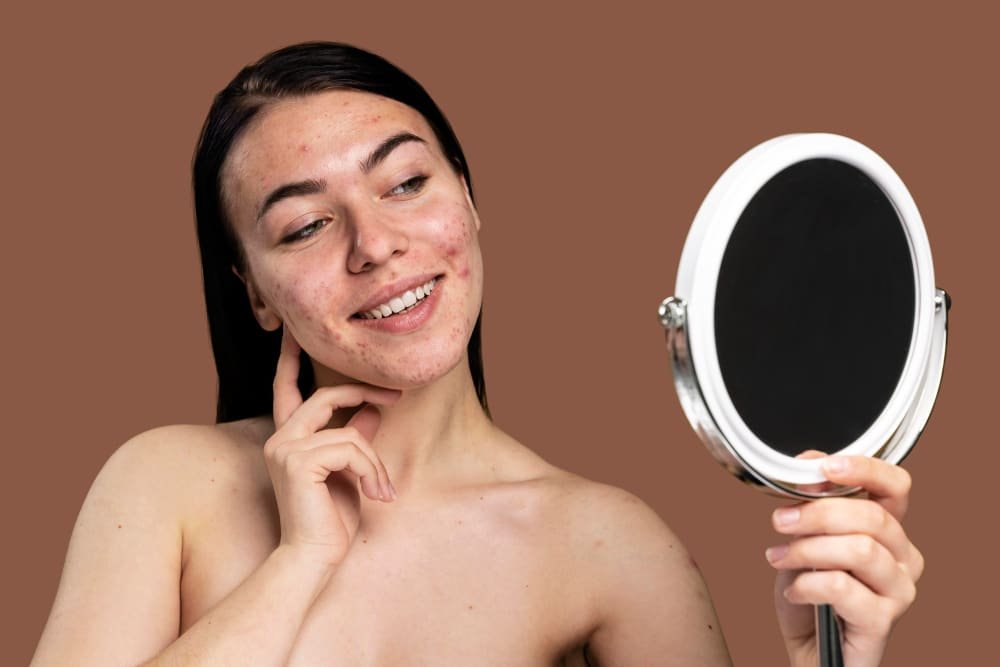
Acne is not just a problem of adolescence. A growing number of adults, especially women, are experiencing acne after the age of 30, even if they have never had a problem before. This is adult acne, a distinct form of this dermatological condition that requires a specialized approach.
What is adult acne?
Adult acne is the presence of inflammatory and/or non-inflammatory skin lesions (pimples, comedones, cysts) that appear after the age of 25-30. It is often located on the lower face (jaw, neck), but can also affect the back or chest.
Where is it due?
The etiology of adult acne is multifactorial and includes:
- Hormonal fluctuations (e.g. cycle, polycystic ovaries, pregnancy)
- Stress, which increases cortisol and sebum levels
- Cosmetics that clog pores (comedogenic products)
- Diet rich in sugar and dairy products
- Hereditary predisposition
- Inappropriate or excessive facial cleansing
How is it Treated?
Treatment of adult acne should be individualized and carried out under the supervision of a dermatologist. It includes:
Topical treatments
- Retinoids (e.g. tretinoin): regulate cell exfoliation and cleanse pores
- Antibacterials/Anti-inflammatories such as clindamycin or niacinamide
- Benzoyl peroxide to reduce bacteria and inflammation
Systematic Education
- Oral antibiotics (doxycycline, minocycline) for a controlled period of time
- Hormonal therapy, such as birth control pills or spironolactone in women with hormonal acne
- Isotretinoin in cases of resistant, severe acne
Proper care at home:
The daily care routine plays a crucial role:
- Cleaning with a mild cleanser twice a day
- Using non-comedogenic moisturizers
- Sun protection with a light texture
- Avoiding “popping” pimples and excessive exfoliation
Additional treatments at the clinic:
- Chemical Peelings with salicylic or glycolic acid
- LED phototherapy (blue and/or red light)
- Microneedling or fractional laser for acne scars
- Facial cleansing by specialized personnel
The importance of prevention & constant monitoring
Adult acne often has a chronic course, with remissions and flare-ups. Constant monitoring by a dermatologist helps to proactively control flare-ups, modify treatment when necessary, and maintain results.
The role of nutrition in adult acne
Diet can affect acne:
- On the contrary, a diet rich in fiber, zinc, and omega-3 fatty acids can help improve the condition.
- Increased intake of dairy and foods with a high glycemic index has been associated with acne flare-ups
Final advice from the dermatologist
Acne in adulthood is neither rare nor incurable. With proper medical guidance, patience and consistency, improvement is possible and often impressive. If you notice persistent lesions on your face or body after 30, do not neglect it. Seek the advice of your dermatologist and give your skin the health and self-confidence it deserves.
Book your appointment today at the dermatology clinic in Glyfada for a personalized diagnosis.




